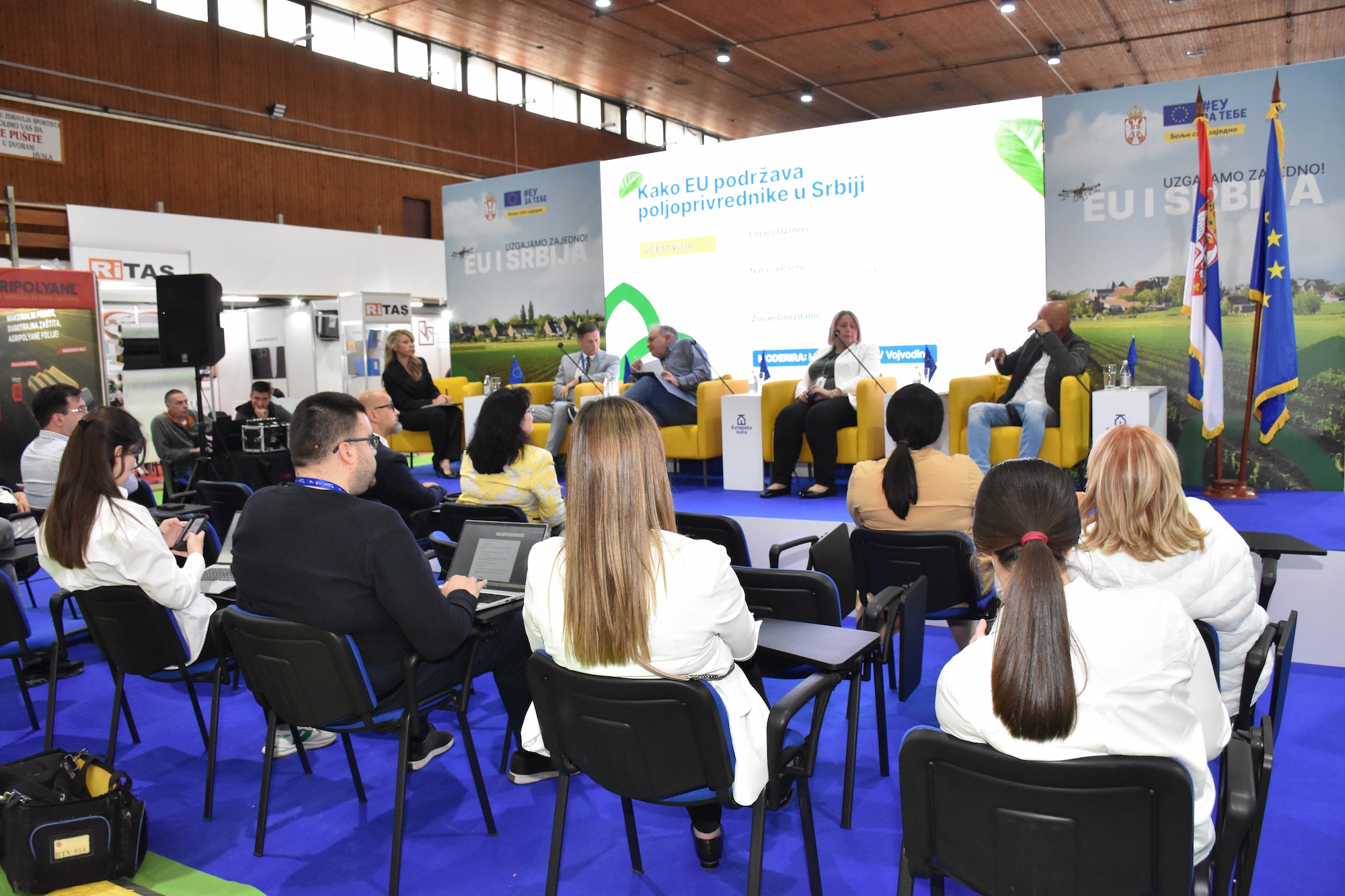The 92nd International Agricultural Fair was officially opened today in Novi Sad, in the presence of officials from the Government of Serbia, the Provincial Government, and the City of Novi Sad. This year, the Delegation of the European Union to Serbia has prepared an engaging programme at the EU Pavilion in Hall 1, with all activities held under the slogan “EU and Serbia – Cultivating Together.”
The EU Ambassador to Serbia, Emanuele Giaufret, visited the fair on the first day. At the EU Pavilion’s special EU kitchen, he prepared Italian pasta for all visitors and toured the stands of various exhibitors. In a statement to the media, Ambassador Giaufret emphasised that the Union continues to support farmers in Serbia.
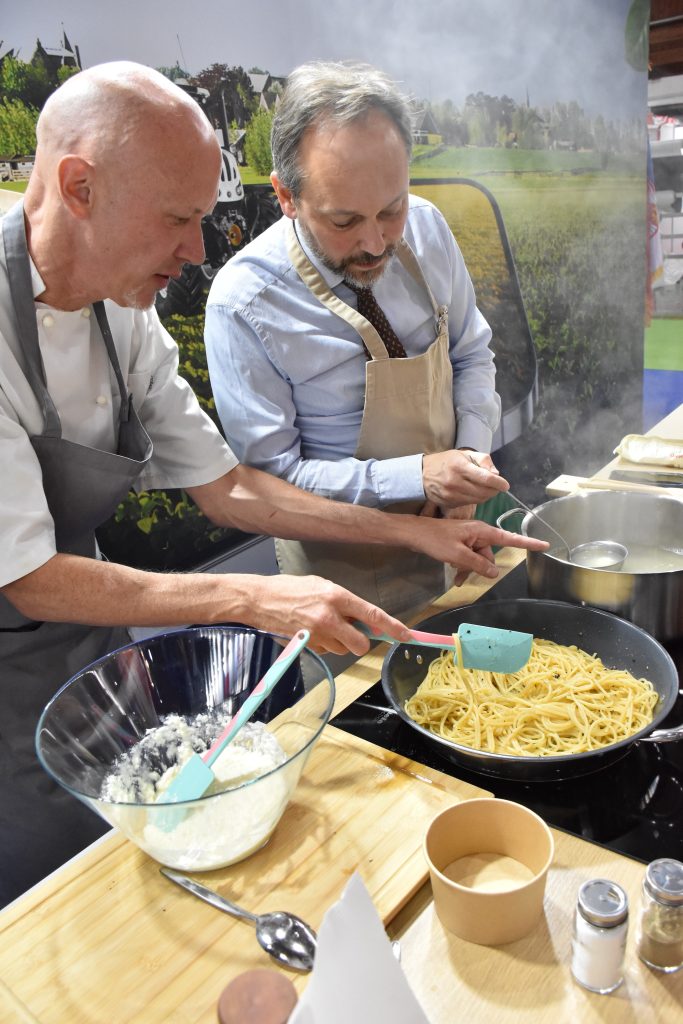
“Our support aims at improving the competitiveness of the agriculture sector in preparation for EU accession, improving the quality of life of residents of rural areas, harmonising legislation in the sector with EU legislation, as well as building up key systems essential for managing agricultural payments in line with EU practices. The European Union therefore wants its significant IPARD III budget of €288 million is implemented more efficiently, so that it reaches the sector quickly and so that farmers and agro-processors do not have to wait too long to realise their business plans,” said Ambassador Giaufret.
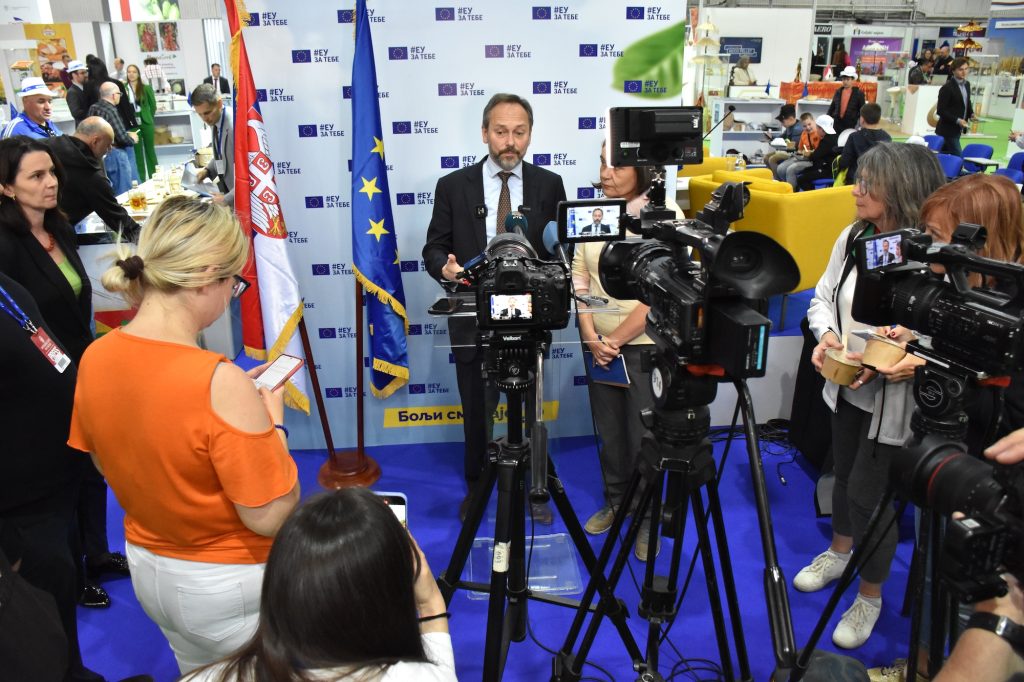
Throughout the day at the EU Pavilion, visitors had the opportunity to learn how IPARD funding can improve their business operations.
Rural development programmes in the European Union are crucial not only for supporting agribusiness but also for improving quality of life, noted Elgars Ozolins, Head of Section in charge with Agriculture at EU Delegation to Serbia. He highlighted this as one of the reasons why such funding is made available to Serbia as a candidate country.
“The second reason is to train state institutions to prepare them to manage funds under the EU’s Common Agricultural Policy when Serbia becomes an EU Member State – and when the available funds will be significantly larger. I am pleased to be here with one of the beneficiaries who says that the application process was not complicated and that obtaining funds is possible,” said Ozolins.
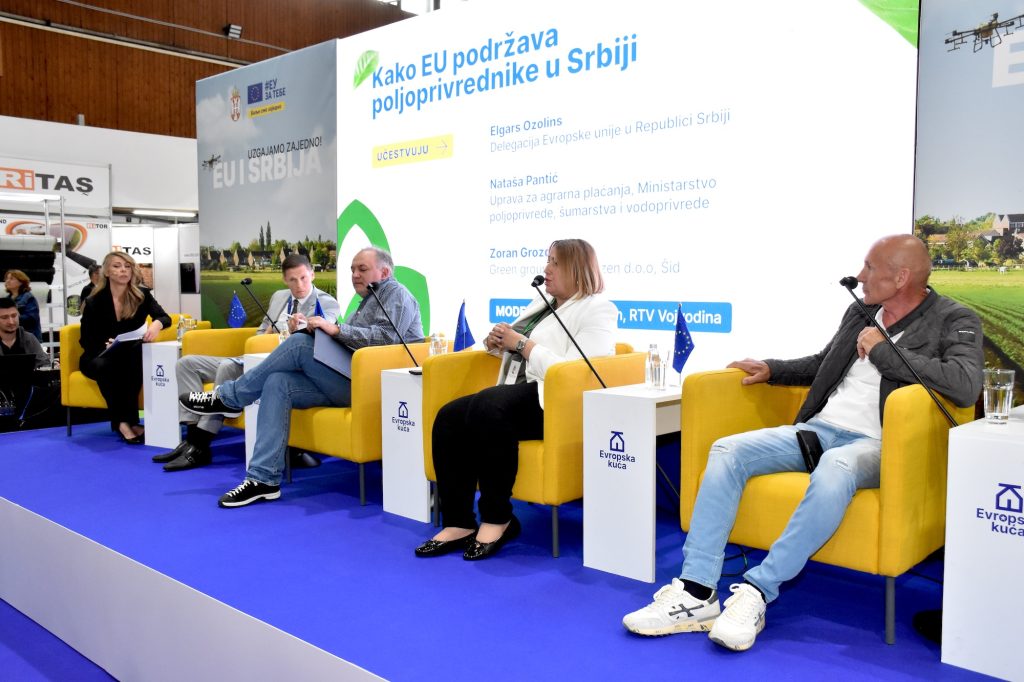
Zoran Grozdanić from Šid and his company Green Group, Fresh and Frozen, used EU support to improve fruit production and freezing processes.
“When we saw that profits were falling in primary production, we decided to diversify and enter the so-called frozen programme. We applied for a cherry processing and deep-freezing tunnel line, and we succeeded. After that, we were hit by a supercell storm, which destroyed over 80% of our orchards, even though we had protective nets. This support was a lifeline for us,” said Grozdanić.
Nataša Panić from the Directorate for Agrarian Payments noted that the example of Green Group, Fresh and Frozen, shows how IPARD investment can also prepare farmers for major challenges.
“IPARD can put you on solid ground, making you independent and resilient to many unknown factors you’ve previously depended on. My appeal is: apply to IPARD calls – it is not out of reach, it is very accessible and realistic. Let it become part of your business life and success,” said Panić.
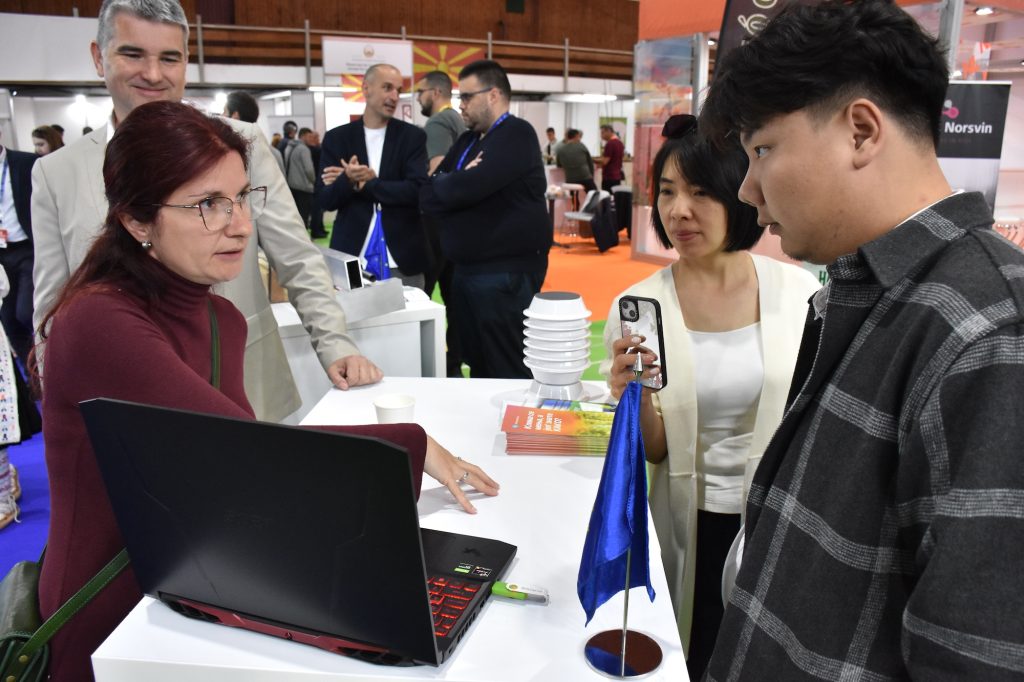
At the EU Pavilion, farmers also had the opportunity to explore the latest technological solutions and speak with experts. Marina Ljubenović from the company Veles Sens mentioned that one of the current topics was the recent drought, which shifted the entire grape-growing season by a month and a half. She stressed that using new technologies is no longer a choice but a necessity.
“Another very important aspect is that the European Union itself has a From Farm to Fork strategy, which states that pesticide use must be drastically reduced by 2030. Our farmers are used to regularly spraying crops, regardless of the weather or temperature – they simply follow a calendar. That won’t work anymore. They will have to reduce pesticide use, and we can help with that,” added Ljubenović.
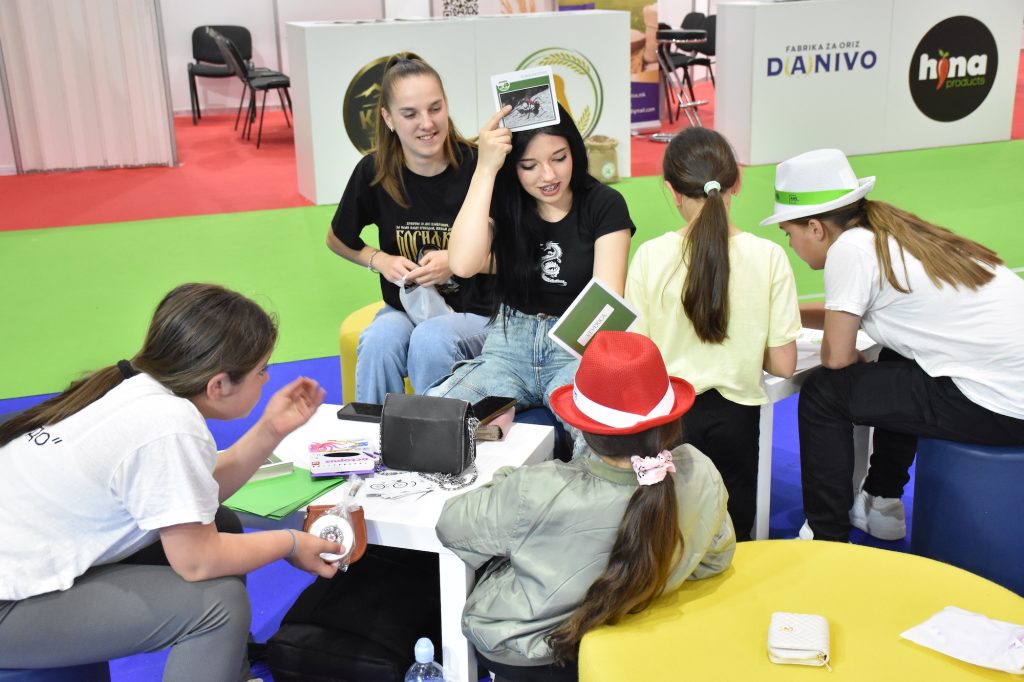
The day was not only marked by serious topics – there were also entertaining activities. Throughout the day, visitors enjoyed ice cream and pasta from the EU kitchen, while the youngest had fun in workshops dedicated to environmental protection.

